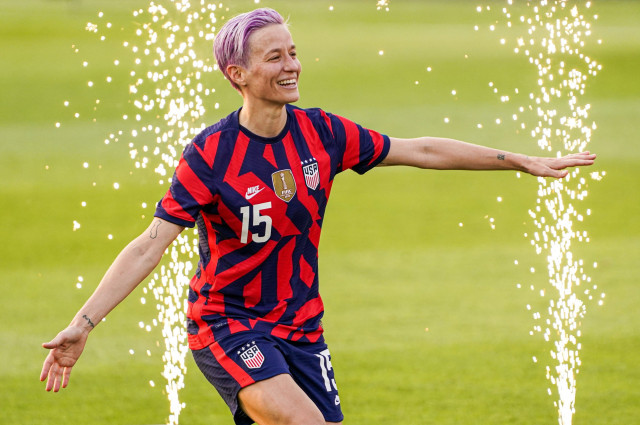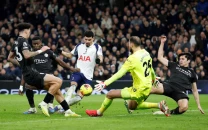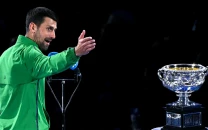Rapinoe spurred by Olympic 2016 exit as US chase double
The ill-fated Rio campaign was a rare blemish on the Americans dazzling record of success at international level

The bitter memory of defeat is driving Megan Rapinoe and the United States women's football team as they chase an unprecedented double at the Olympics.
Five years ago, the US women were bundled out of the Rio de Janeiro Olympics in the quarter-finals, losing to Sweden on penalties in an upset that shattered American hopes of a fourth consecutive gold medal.
It marked the first time that the US has failed to reach the gold medal game since women's football was introduced at the 1996 Atlanta Olympics.
"It was terrible," Rapinoe said. "It felt like total failure. We didn't complete the task, we didn't play well and it was a particularly kind of gutting loss in a lot of ways.
"It was really sad. We had a lot of people in their first major championships, so that was tough to go out as early as we did. I wouldn't say it left a bad taste in our mouth -- it left a fire under people to never let that happen again. It gave a lot of us motivation.
"Everybody who was in Rio does not want that to be their last Olympic experience."
The ill-fated Rio campaign was a rare blemish on Rapinoe's dazzling record of success at international level.
The 36-year-old midfielder is arguably the most recognisable member of an American women's team that has dominated international football for most of the past decade.
A key member of the US team that won the gold medal at the 2012 Olympics, Rapinoe was also a pillar of the squads that won back-to-back women's World Cups in 2015 and 2019.
Since making her international debut in 2006, Rapinoe has accumulated 177 caps with 59 goals and 69 assists.
She will spearhead a US team in Tokyo which is on a 44-game unbeaten streak, having not lost a game since a 3-1 defeat by France in January 2019.
A gold medal in Tokyo would make the US women the first team to follow up a World Cup triumph with Olympic gold.
Rapinoe says the enforced break caused by the pandemic has benefited the US women in their quest for the double.
"This was a nice silver living of Covid and the pandemic -- to have a year of rest," she said. "Some players played overseas, some players took more time for themselves, time that we never really get, to get our bodies right.
"I think of all the teams we probably have the most benefit because we would have been so tired after all the wildness of 2019."
The "wildness" of 2019 included her role in the US women's World Cup success, as well as a much-publicised spat with then US President Donald Trump.
Rapinoe, who is openly gay, has forged a reputation as an unflinching advocate for social justice causes off the field, from demanding equal pay and conditions for her and team-mates to protesting against racial injustice.
"If there is a barrier in the way, I think I have to bust it down and extend beyond myself," Rapinoe says.
"I have people listening to me, so I feel a responsibility to do what I can with what I have to try to make the world better in whatever way I'm able to."
Rapinoe is circumspect about her future playing career, stating repeatedly that she will reassess her options once the Olympics are done and dusted.
Nevertheless, she has suggested she may attempt to prolong her career until the 2023 World Cup, when she will be 38.
"I want to keep playing as long as I can," she said at the Forbes Power Women's Summit in December last year.
"We have this short time in the span of our life to be an athlete. I think sometimes it feels long, like I've been doing this forever -- but I don't really want to cut it short.
"It's an amazing job. Hopefully I can make it to Australia for a World Cup. That idea is pretty enticing. I feel like I'll still be clinging on for that one."



















COMMENTS
Comments are moderated and generally will be posted if they are on-topic and not abusive.
For more information, please see our Comments FAQ